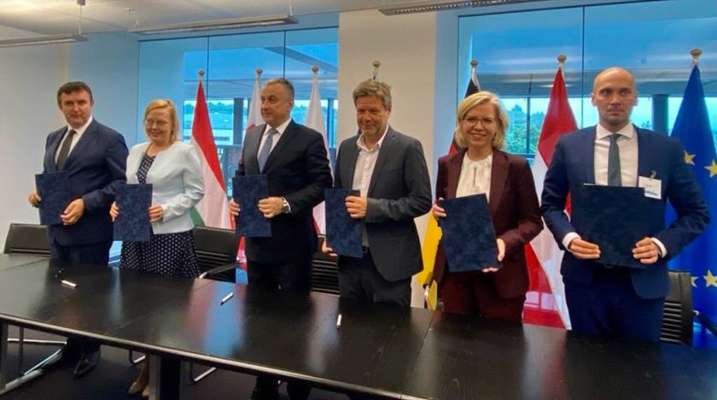The German Economy Ministry said in a statement that “European Union energy ministers have agreed to increase the share of renewables in energy production in the 27-country bloc to 40 percent by 2030.” And pointed out that “it was also agreed that the Member States of the Union, which are lagging behind in achieving target levels of energy saving, will have to take additional measures.”
It is noteworthy that German Economy Minister Robert Habeck previously announced “a plan aimed at forming the share of renewable energy in his country, which by the end of the current green transformation.”
To achieve this goal, Germany had to increase electricity production from clean energy sources at rates of 120 to 150 percent, close to 600 TWh by the end of the current decade.
Now, the aftermath of the Russian war in Ukraine is creating new challenges for getting out of control of Russian gas in light of deteriorating economic conditions. In May last year, Germany recorded its highest inflation rate in almost 50 years, fueled by the high cost of living and gas prices. energy and food.
Data released by the German Statistical Agency (Destatis) showed that the inflation rate reached 7.9 percent in May 2022, as preliminary data was based on the consumer price index and compared to prices in May 2021, and this is the highest recorded level inflation. Germany since its reunification, which corresponds to the level that was recorded in 1973 and 1974 after the world oil crisis.
Source: El Nashra
